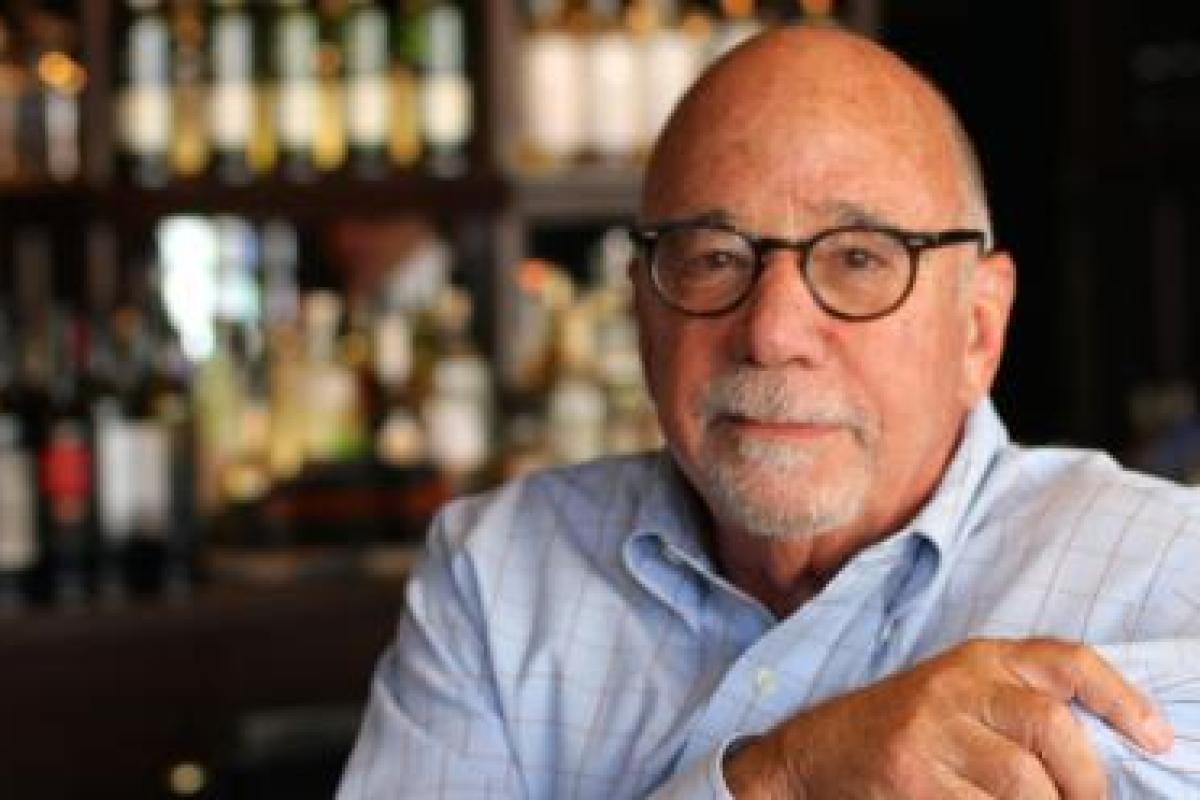The Ad Contrarian blogger and former creative director, and agency CEO, Bob Hoffman on what he learned from 41 years in the industry and the falsehoods being peddled by some marketers and ad agencies.
Your blog The Ad Contrarian is nearly 10 years old now. How much web traffic does it get, how many people are on your newsletter database and why haven’t you monetised the blog?
“Well, I’ve never monetised it and I have no intention of monetising it. I don’t do it for money, I do it out of frustration more than anything else. The advantage of the blog is not so much in selling my books as nobody really makes money on niche books anymore unless you write bestsellers. But it does get me a lot of speaking engagements, which pay nicely and are enjoyable.
“I usually get 3,000-5,000 readers a day and on a good day it will be 10,000. The readership is also remarkably international, as is the case with my newsletter. Half comes from the United States and half from the rest of the world. I have 3,300 newsletter subscribers and I usually get a 50 per cent open rate, which is pretty good when you think that a marketing newsletter would normally get around an 11 per cent open rate.”

You’ve worked with many of the top international brands including McDonald’s and Toyota. Which has been the best experience of your whole career and why?
“My favourite accounts to work on have been Qantas, which was a delight to work on at my first agency, and indeed Toyota.”
So what makes for a good account and a good client then?
“If the client trusts you, then you can do pretty much anything. If they don’t trust you, you can’t do anything. Of course, you have to earn the trust by doing things that are creatively and commercially successful, and aren’t self-indulgent. If you can put their interests before your interests that creates a really good relationship between a client and an agency, which then allows you to do better work.
“No client is ever going to say: ‘Just do whatever the hell you want.’ That’s not realistic and we don’t live in a world like that, but if you show them success and develop trust they will allow you to do different things than they otherwise would.”
You said in 2014 you can’t kill advertising and when the asteroid hits there will only be two things left, copywriters and cockroaches – and the clients will be the cockroaches. Do you stick to that line now in 2017 when the young generation at least don’t read newspapers or magazines, when adblockers are widely used and nobody watches linear television? Surely, the industry is in transition at best and managed decline at worst?
“It’s in a slow-motion death spiral because we have forgotten what we are about and we are trying to compete with consultants and data companies now. And, as a result, we have stopped investing in creativity. The global holding companies are investing way more in data and metrics than creative people these days.
“So what we are doing is playing the other guy’s game. We’re pretending to be data and analytics companies. We have forgotten that the only unique benefits we can provide to clients is imaginative thinking and creativity. Everything else, aside from ideas, they can get somewhere else. We are running away from creativity to pretend we are something we are not.”
But the counter view is that the grandiose TV ads and print campaigns of yesteryear just don’t play well with millennials.
“I totally disagree with that. Good ideas are good ideas. Things that are entertaining, interesting and uplifting will always be attractive to everyone. How we deliver the idea is different, that’s for sure.
“There are certainly all kinds of new media and new modes of communication and that should inspire new creative ideas. However, what it seems to have done is remove the imagination from advertising and make it all direct sales.
“It becomes a self-fulfilling prophecy to say the younger generation doesn’t react to imagination and new ideas, so we keep feeding them the same old crap. It’s bogus, there are still agencies doing great work that are successful despite the bulk of the industry being conglomerated and consolidated into these holding companies run by people who are not advertising people.
“They are run by financiers, bankers, lawyers and accountants. These people are much more comfortable with numbers than ideas, so they will default to numbers.”
OK, changing topic now. Have you ever worked on a Super Bowl ad and, if so, how did you find that experience?
“Actually, there’s a great story to that. We bought time in the Super Bowl and I did a spot in the mid 1990s for the first ever erectile dysfunction pharmaceutical. We created a very discreet spot that was simply done and in no way sexual because we knew we were in dangerous territory. But NBC rejected it and wouldn’t let us run it. Cut to three years later and there was nothing but erectile dysfunction advertising all over television.”
And do you think these ads provide a return on investment?
“Who the hell knows? This has been argued about for 40 years. Is it worth it? To some people who do good advertising and know how to work the system, it’s worth it. But to a lot of people, it’s a waste of money.
“It’s the one day of the year though that people are looking for entertainment from advertising. To me, the exposure itself is worth something but the quality of the exposure is the important thing. You know a lot of people have done a lot of really bad Super Bowl ads that has done nothing for them and others have put themselves on the map with some really wonderful advertising.”
So which brands put themselves on the map this way?
“Well, it was the first thing that put Apple on the map. And over the years, Budweiser has done some very nice Super Bowl advertising, as has Doritos”
At the other end of the spectrum, you have ads that sometimes run once at 2am on a television channel that nobody is watching to ensure that they are eligible to enter in awards shows. Any thoughts on scam work like that and industry awards?
“The big picture is I like industry awards, only because creative people do so much suffering that it’s wonderful that they get some recognition once in a while for doing good stuff. It’s not the be all and end all like some agencies think it is, but it is good for the morale of creative people.
“On the other hand, it’s so easy to game the system and it happens a lot. The event organisers need to create more barriers to entry by saying the work has to run this many times in serious markets. Although there are too many big problems in the world to worry about policing advertising awards shows I think. It’s not anyone’s high priority.”
Your LinkedIn profile lists your current role as ‘chief aggravation officer’ at the ‘Type A Group’, which is very amusing. But what does that involve exactly and who are you working with these days as a consultant?
“Well, the job title I’ve given myself relates to my objective which is to try and make marketers uncomfortable. There is a lot of pretence and baloney not just in our language, but also in our actions. So my job is to point out the things we don’t really know and the things we think we know that are wrong.
“On a personal level, my interest is in writing and speaking. I have very little interest in consulting and advising. Mostly I turn it down because people don’t want my opinion, they want my approval. I don’t need to do it, I’m supposed to be kind of retired and it doesn’t pay very well. I find I can make just as much money by doing a talk as I can by consulting for some bozos for a month who I don’t really like.”
We have some big beasts like you who once they leave the industry and are outside the tent become very good at highlighting the industry’s problems. So did you feel you couldn’t be honest when you were inside the tent?
“Only towards the end. I have never been shy of saying what I really think and it served me well for much of my career. In the last few years, it became difficult because I was not enthusiastic about social media and online advertising.
“And it was very tough for me to tell my clients that because they all wanted to believe in it. It was dangerous for me to tell them they were wasting money. There is a low-grade McCarthyism in the agency business these days that is very harmful to the industry. You are just not allowed to say certain things. If you do, you become a traditionalist and in 90 days you are going to be out of a job.
“If you hold certain opinions, you are a Luddite or a dinosaur. One of the things I have seen is that it’s better to be wrong within the normal range than it is to be right outside the normal range. You can say that social media is going to replace advertising and be 100 per cent wrong, but you are within the normal range of what people believe.
“Whereas if you say that social media is a complete waste of time and money, and does more harm than good in many cases, you may be 100 per cent right. However, you are outside the normal range and your CEO is going to think there is something wrong with you for saying it, and you will not last.
“There is a whole lot of bad ideology that is floating around the marketing world these days. It’s rigid and intolerant. People who are working in agencies can’t say what they really think. They are afraid to say out loud what they are thinking.”
So in that case there is nothing to be done to change it then?
“There will always be advertising and agencies, it will not disappear completely, but consultancy businesses will slowly eat away at the industry. These consultancy firms are selling strategy and analytics so why not hire some creative people as well and sell them advertising. It’s the smart thing to do.”
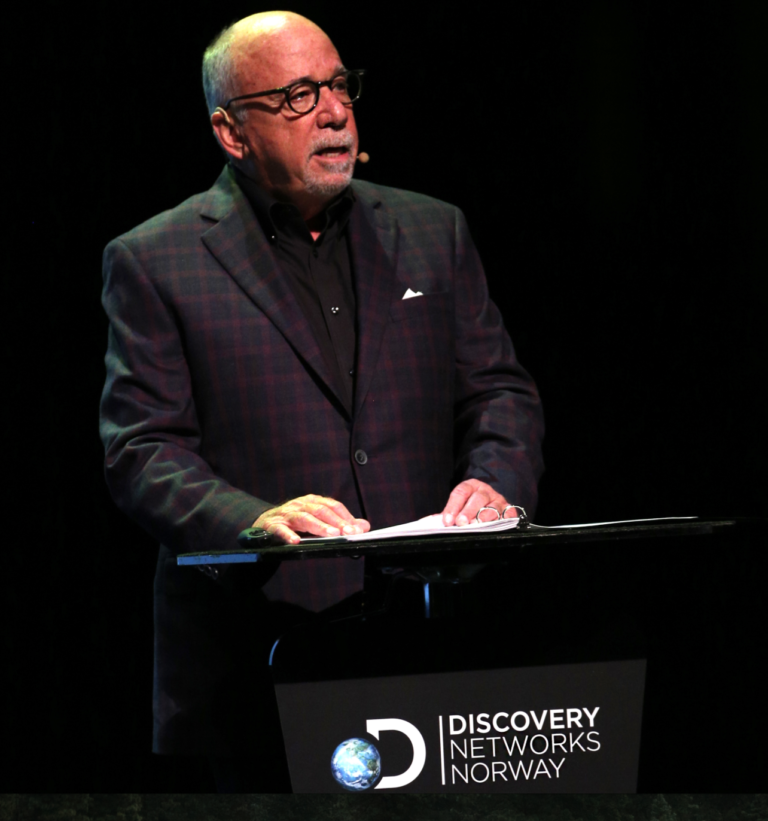
Back to social media, you’ve got quite a following on Twitter with more than 18,000 followers. But which social media platforms do you think marketers and ad agencies should focus on, if any?
“Social media is fine for keeping in touch with your heavy users and the customers already interested in you, but it doesn’t build businesses and create new customers.
“If you look at Facebook, Instagram and Snapchat it’s not about people sharing their enthusiasm for brands and ‘joining the conversation’. It’s about traditional paid advertising, nobody is having conversations about brands. It’s bullshit.
“On social media, for every success there are 10,000 failures. You have to be really good at it and there are very few people that can do it. Why are 97 per cent of all ads, books, movies and films crappy? Because it’s really really difficult to make good stuff. And it’s the same with social media. Most of it is worthless and has no creativity or imagination to it.”
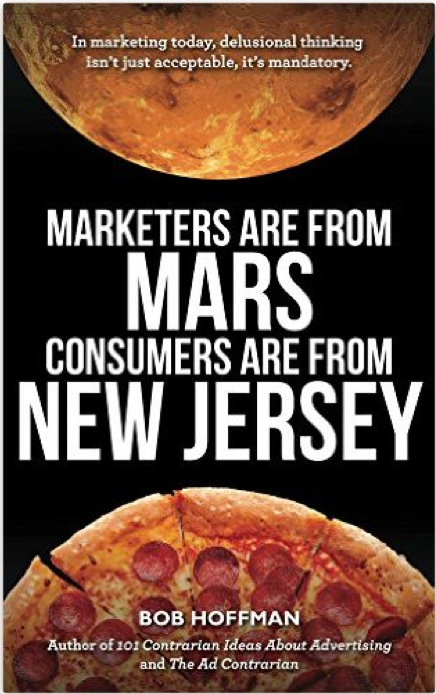
You’ve written a best-selling book Marketers are from Mars and Consumers are from New Jersey, based on what you learnt from your 41 years in the ad business before you retired in 2013. Any plans for a follow-up?
“Yes, I’m now writing a new book about how the marketing and advertising industry is evolving from a minor annoyance into a social menace – through tracking and all the unpleasant accoutrements that go with that. It will be about how the marketing and advertising industry is spying on us and the dangers of that.”
Moving to the question of demographics. You’ve said that the advertising world ignores the over 50s and yet they have the most money and spend the most. Why is that?
“It is essentially marketing by selfie stick. This stretches back into the 1960s whereby you had the baby boomers coming into money and marketers deciding that they needed to focus only on 18 to 34-year-olds, ignoring everyone older than that. It was probably correct at the time and for 20 to 30 years after that.
“But that generation is now over 50 and yet it is still the most valuable generation in the history of marketing – they have all the money still. Things have changed enormously. We are going through the biggest demographic change probably in the history of humanity and it’s being ignored.
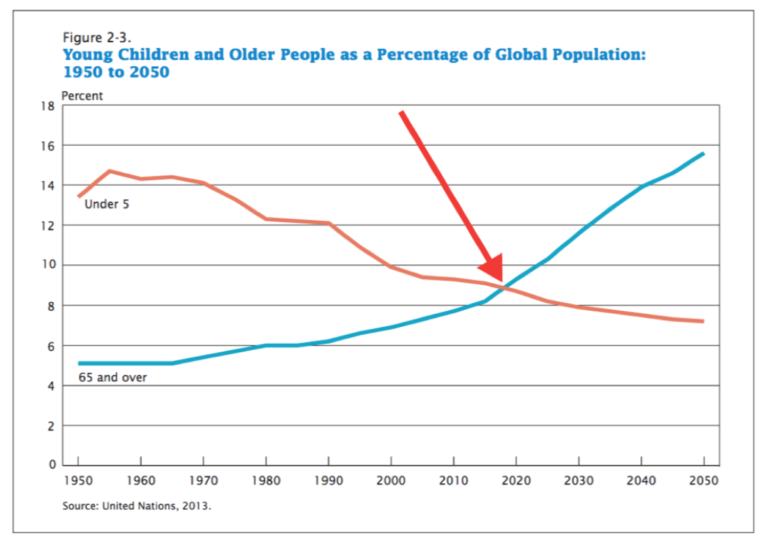
“In 1950, there were three times as many people in the world under five years of age as there were people over 65. By 2050, there will be over twice as many people over 65 as there will be under five. It makes no sense whatsoever to ignore this demographic change. But agency buyers don’t want to hear about people over 50, as they are all 27 and their friends don’t watch television.
“When I retired from the agency business I was going to start an agency that focused on people over 50. I met with lots of people in New York about doing it and everyone told me I was right, but it was a waste of time because nobody wants to hear the truth. So I decided not to do it. Someone will do it someday and be successful with it though.”
“I think it’s pretty much horseshit. All this collaboration bullshit is for people with no creative talent to get their fingers in the creative pie. Sure, you want the suits to know a little bit about creative and vice versa.
“I always listened to what the account people and planners used to say. I was open minded about it. But when it came to creating the ads ‘keep your fucking hands off em’ was my point of view.”
So the holding companies going in that direction, like Havas, are wide of the mark then in your view?
“Again, the holding companies are not run by advertising people. The advertising industry was built by craftspeople – by copywriters, art directors or research people. They were entrepreneurial in that they worked for an agency and then would leave and start their own agency. They worked on advertising and accounts.
“The people running the companies now do not. They never worked in the craft of advertising. They are investors and financiers. They may be very smart, but they are the opposite of how the agency business was built. Whereas the industry once grew from the bottom up, it is now being consolidated from the top down.
“And that means they have pissed their clients off more and more. Clients are very dissatisfied on the whole with the agency business now and it’s no accident.”
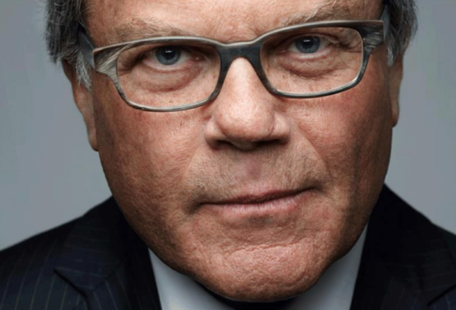
And, of course, you once said: “Martin Sorrell is to advertising what McDonald’s is to food.” But isn’t WPP a huge success story that actually puts the ad industry on the map in terms of being a prominent global business?
“It is a sad commentary on our industry that the most powerful man in the history of advertising is not an advertising guy. He’s an accountant who has found a way to make the agency business his own.”
So do any metrics other than product sales count when it comes to ad dollars?
“Advertising has a short-terms sales value and a long-term brand value. The latter is very difficult to measure. To give you an example, Volkswagen has done some very good advertising over a long period of 50 or 60 years. They went through this horrendous problem in the last couple of years over lying about emissions and all that crap.
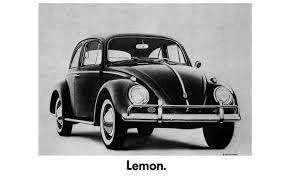
“But the brand equity they built by spending billions of dollars over half a century on good advertising kept them afloat. If they hadn’t created that positive feeling about the brand they would have been in danger of going under. So far at least, they have survived.
“These days, because of the metrics of online advertising, we are measuring nothing but short-term results. Take a walk through the supermarket and tell me if you see any brands that were built by online advertising. I can’t find a single soap, soda, beer or shampoo that was.”
So given all that, if we are focusing on the wrong things and measuring the wrong things then is advertising still a good place to work if you are a creative person?
“There are certain wonderful agencies still doing great work, like the Droga5s of this world, and I would encourage young talent to go and work at these places. Every country has them. There are some great independent agencies that people just don’t hear about. Creative people have so many more options now than to go and work in the big corporate agencies.”
Programmatic and brand safety. Discuss.
“Two of the things that make me laugh are client big shots suddenly discovering that the ‘transparency’ of online advertising is a problem, and agency aristocrats discovering that they are placing ads in bad places. What a charade.
“These clients are the same guys who’ve been asleep at the wheel for a decade, pissing away tens of millions of money of their companies without knowing what they’re buying, who they’re buying it from, what they’re paying or where it’s running. Suddenly, they’re shocked that online advertising is non-transparent.
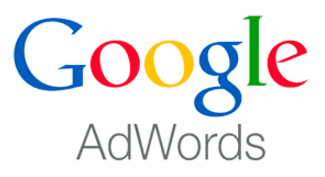
“Then there are the agency aristocrats who’ve been peddling this miracle drug to clients for a decade – reaping millions in fees – suddenly demanding to see the manager because they’re shocked that the drug they’ve been peddling is dangerous.
“The play-acting on both sides is just hilarious and the fact that the trade press buys this horseshit is pathetic.”
You’ve been a creative director and a CEO. Which role was more fun and why?
“Creative director was more pain, harder work but more fun. I’m not sure CEO is what I should have done, whether I should have stayed in the creative end of the business. I always wonder, did I do the right thing? Should I have stayed on the creative side rather than getting into agency management?”
I know that you think that 97 per cent of the media and marketing world is mediocre. Why are we in that depressing position?
“Most people are mediocre and aren’t really good at anything. It’s not that they don’t try hard, the average person is just average. And the marketing industry doesn’t attract enough really smart and talented people. It attracts a lot of B students as well as some brilliant people. But it’s not like science or medicine where really brilliant people are the norm.
“The piece that Dave Trott wrote that was on Mumbrella Asia about clients expecting mediocrity is very true. Dave nailed it. Breaking out of mediocrity is threatening to a lot of clients. Because of advertising and marketing education over the last 20 years, that mediocrity is manifest now that these people have big positions at big companies.
“People have been taught questionable things on advertising and marketing courses. You do what you’re taught. To use an analogy, the medical profession for 2,000 years bled people to try to heal them. Why? Because that’s what they were taught. It didn’t matter that it wasn’t doing anyone any good. They were taught it and they believed it so they did it.”
“They will just get deeper and deeper into media. They already are very large media companies even though they are pretending they are not. The governments will eventually have to come down on them because they are monopolistic and way too powerful.
“Media, particularly broadcast media, is a way for them to diversify and create convergence with the properties they already have. They will creep into it slowly by the back door so that they don’t raise any red flags.”
